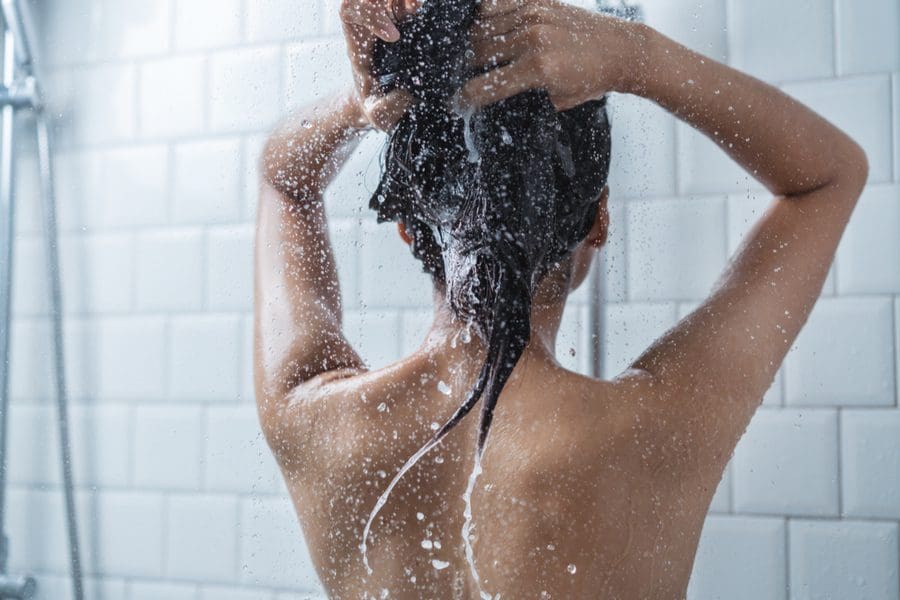When it comes to hair care, choosing the right shampoo is essential. You might be looking for keywords like “moisturizing,” “strengthening,” and “sulfate-free.” However, it’s the list of ingredients that we should be concerned with, as many shampoos use chemicals that can do more harm than good. Steer clear of a shampoo that uses these ingredients.
Sodium Lauryl Sulfate (SLS), Polyethylene Glycol (PEG), and Sodium Chloride
These ingredients are common thickeners that produce a satisfying lather. The problem with all that suds? It can be super drying and can contribute to parched hair, an itchy scalp, and an overproduction of oil to compensate.
SLS is an irritant that can strip your hair of its natural oils, resulting in brittle, damaged strands and inhibiting hair growth.
Like SLS, PEG removes moisture from your hair, leaving it drier than it was before your shower.
Sodium chloride, better known as table salt, will dry out your scalp, resulting in tight, itchy skin, dandruff, and even hair loss.
Mineral Oil, Lanolin, and Petroleum
Is there anything worse than greasy hair? While you may think shampoo will combat the issue, if you’re not careful what you use, you may be putting more oil on your hair.
Petroleum is probably the last thing you want to put on your hair. It’s the same stuff in vaseline—a heavily occlusive substance (great for your lips, not so much for your hair). It will sit on your scalp, weighing down your hair and contributing to an oily scalp. Unfortunately, it’s not the only chemical that does this.
Lanolin is another occlusive product found in hydrating or moisturizing shampoos. But lanolin only works if there is already moisture present in your hair. Lanolin can’t create moisture—it can only protect it.
Mineral oil will build up in your scalp, which leaves your hair stiff and weighs it down. If you don’t want oily residue on your scalp, avoid mineral oils.
Diethanolamine (DEA), Triethanolamine (TEA), and Propylene Glycol
Run far, far away from these chemicals, no matter your hair type. These synthetic ingredients damage your scalp, resulting in hair loss and breakage. They can also be harmful to your overall well-being.
DEA is a foaming agent in shampoo. Undiluted, the chemical is a hazardous material because of its corrosive properties. It is a known irritant and is a potential carcinogen, meaning long-term exposure might cause cancer.
TEA is another surfactant that creates foam in shampoo. While not linked to cancer, TEA can be heavily irritating and drying for your scalp and hair.
Propylene glycol, better known as anti-freeze, may help the manufacturer ship out more shampoo without issue but can be a harsh irritant or even an allergen.
We’re also skeptical of artificial fragrance and color in shampoos. Fragrances are primarily alcohol, which will dry out your hair and scalp. Over time, exposure to artificial fragrances can even cause allergies. Sure, the shampoo smells good, but at what cost?
While this is not an exhaustive list of harmful chemicals, these are certainly some of the most common perpetrators. So, stop skimming the front of bottles for those keywords—instead, read the back and learn exactly what you’re purchasing.
If you’re unsure how safe an ingredient may be, check with organizations like the Environmental Working Group (click here) and Think Dirty (click here).






